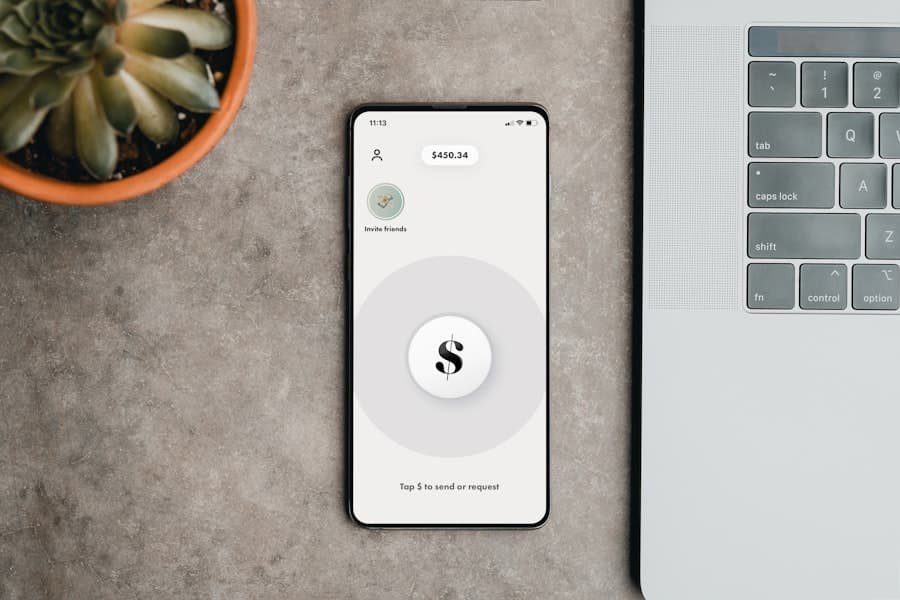The concept of real-time salary access has gained significant traction in recent years, driven by technological advancements and changing employee expectations. Traditionally, employees have had to wait for the end of a pay period to receive their wages, often leading to financial stress and uncertainty. However, with the advent of FinTech solutions, companies are now able to offer employees immediate access to their earned wages.
This shift is not merely a trend; it represents a fundamental change in how compensation is perceived and delivered. The rise of real-time salary access can be attributed to several factors, including the increasing gig economy, where workers often juggle multiple jobs and require flexible payment options. Additionally, the COVID-19 pandemic has accelerated the demand for more agile financial solutions as many individuals faced unexpected financial hardships.
Companies that adopt real-time salary access not only enhance employee satisfaction but also position themselves as forward-thinking employers in a competitive job market. This evolution reflects a broader cultural shift towards valuing employee well-being and financial security.
Key Takeaways
- Real-time salary access is on the rise, allowing employees to access their earned wages before the traditional payday.
- FinTech is disrupting traditional payroll systems, offering more flexibility and convenience for both employers and employees.
- Real-time payments provide employees with greater financial flexibility and control, reducing reliance on high-interest payday loans.
- FinTech plays a crucial role in improving financial wellness by providing tools and solutions for better money management.
- The future of real-time salary access and payments is expected to continue growing, especially in a post-pandemic world where financial flexibility is crucial.
The Impact of FinTech on Traditional Payroll Systems
Streamlining Payroll Processes
Historically, payroll systems were cumbersome, often requiring extensive manual input and reconciliation. The integration of FinTech solutions has automated many of these processes, reducing the time and resources needed to manage payroll.
Enhancing Transparency and Accessibility
For instance, cloud-based payroll software allows for real-time data processing, enabling companies to calculate wages accurately and distribute payments promptly. Moreover, FinTech has introduced features such as mobile applications that empower employees to track their earnings and access their pay on demand. This level of transparency was previously unattainable in traditional payroll systems, where employees often had limited visibility into their earnings until payday.
Ensuring Compliance and Accuracy
By leveraging technologies like blockchain and artificial intelligence, FinTech companies are not only enhancing the accuracy of payroll but also ensuring compliance with labor laws and regulations. This transformation is crucial for businesses looking to adapt to the fast-paced demands of the modern workforce.
The Benefits of Real-Time Payments for Employees

Real-time payments offer numerous benefits for employees, fundamentally altering their financial landscape. One of the most significant advantages is the reduction of financial stress. Employees can access their earned wages whenever they need them, allowing for better management of unexpected expenses or emergencies.
This immediate access can be particularly beneficial for those living paycheck to paycheck, as it provides a safety net that can prevent them from falling into debt or facing late fees. Additionally, real-time payments can enhance employee productivity and morale. When workers know they can access their earnings at any time, they are likely to feel more secure and focused on their tasks rather than worrying about financial constraints.
This sense of financial empowerment can lead to increased job satisfaction and loyalty to the employer. Furthermore, companies that offer real-time salary access may find it easier to attract and retain top talent, as this benefit aligns with the growing demand for flexible work arrangements and financial wellness initiatives.
The Role of FinTech in Improving Financial Wellness
FinTech plays a pivotal role in enhancing financial wellness among employees by providing tools and resources that promote better money management. Many FinTech platforms offer budgeting tools, savings accounts with higher interest rates, and investment options that empower employees to take control of their financial futures. By integrating these services with real-time salary access, employees can make informed decisions about spending, saving, and investing their earnings.
Workshops, webinars, and personalized financial advice can equip individuals with the knowledge they need to navigate complex financial landscapes. This holistic approach to financial wellness not only benefits employees but also contributes to a healthier workplace culture.
Companies that prioritize the financial well-being of their workforce often see reduced absenteeism and increased engagement, creating a win-win scenario for both parties.
The Future of Real-Time Salary Access and Payments in a Post-Pandemic World
As we move into a post-pandemic world, the future of real-time salary access appears promising. The pandemic has reshaped how we view work and compensation, with many employees now expecting more flexibility in their payment options. Organizations that adapt to these changing expectations will likely thrive in the new normal.
The integration of technology into payroll systems will continue to evolve, with advancements in artificial intelligence and machine learning further enhancing the efficiency and accuracy of real-time payments. Additionally, as remote work becomes more prevalent, companies will need to consider how they can support a geographically diverse workforce with varying financial needs. Real-time salary access can bridge this gap by providing employees with immediate access to their earnings regardless of location.
Furthermore, as more businesses recognize the importance of employee well-being in driving productivity, we can expect an increase in partnerships between employers and FinTech companies aimed at creating comprehensive financial wellness programs.
The Potential Challenges and Risks of Real-Time Salary Access

Despite its many advantages, real-time salary access is not without challenges and risks. One significant concern is the potential for employees to develop poor financial habits if they rely too heavily on immediate access to their wages. Without proper financial education and support, some individuals may find themselves overspending or failing to save for future needs.
Employers must be proactive in providing resources that encourage responsible financial behavior alongside real-time payment options. Another challenge lies in the technological infrastructure required to implement real-time salary access effectively. Companies must invest in secure systems that protect sensitive employee data while ensuring seamless transactions.
Cybersecurity threats are an ever-present risk in the digital age, and organizations must prioritize safeguarding their payroll systems against potential breaches. Additionally, there may be regulatory hurdles to navigate as governments assess how best to oversee these new payment models while protecting both employees and employers.
The Regulatory Landscape for Real-Time Salary Access and Payments
The regulatory landscape surrounding real-time salary access is evolving as governments recognize the need for updated frameworks that accommodate new payment technologies. In many jurisdictions, existing labor laws may not adequately address the complexities introduced by real-time payments. As a result, regulators are beginning to explore how best to ensure that employees are protected while allowing businesses the flexibility to innovate.
For instance, some regions have implemented guidelines regarding the frequency of wage payments and transparency in fee structures associated with accessing earned wages early. These regulations aim to prevent predatory practices while promoting fair access to earned income. As more companies adopt real-time salary access solutions, it will be essential for regulators to engage with stakeholders—including employers, employees, and FinTech providers—to create balanced policies that foster innovation while safeguarding workers’ rights.
The Evolution of FinTech Solutions for Real-Time Salary Access and Payments
The evolution of FinTech solutions for real-time salary access has been marked by rapid advancements in technology and an increasing focus on user experience. Early solutions primarily focused on providing basic access to earned wages; however, today’s offerings are far more sophisticated. Many platforms now integrate features such as budgeting tools, savings incentives, and personalized financial advice directly into their applications.
Moreover, partnerships between traditional banks and FinTech startups have become more common as both sectors recognize the value of collaboration in enhancing service offerings. These partnerships allow for greater innovation while leveraging established trust and security measures inherent in traditional banking systems. As technology continues to advance, we can expect even more tailored solutions that cater to the diverse needs of employees across various industries.
In conclusion, the rise of real-time salary access represents a significant shift in how compensation is delivered and perceived within the workforce. As FinTech continues to reshape traditional payroll systems, it brings forth numerous benefits for employees while also presenting challenges that must be addressed through thoughtful regulation and education. The future holds great promise for real-time payments as organizations strive to create more flexible and supportive work environments in an increasingly dynamic world.
In addition to exploring The Future of FinTech in Real-Time Salary Access and Payments, readers may also be interested in learning about the best HP laptop for 2023. This article provides insights into the latest technology and features that HP laptops offer, making it a valuable resource for those in the market for a new device. To read more about the best HP laptop for 2023, check out this article.
FAQs
What is FinTech?
FinTech, short for financial technology, refers to the use of technology to deliver financial services. This can include anything from mobile banking to cryptocurrency.
What is real-time salary access?
Real-time salary access allows employees to access a portion of their earned wages before the traditional payday. This can help employees manage unexpected expenses and avoid high-interest payday loans.
How does FinTech impact real-time salary access and payments?
FinTech companies are developing innovative solutions to provide real-time salary access and streamline payment processes. This includes mobile apps, digital wallets, and blockchain technology.
What are the benefits of real-time salary access and payments?
Real-time salary access can help employees avoid financial stress, reduce reliance on high-interest loans, and improve overall financial wellness. Streamlined payment processes can also save time and reduce administrative costs for businesses.
What are the potential risks of real-time salary access and payments?
While real-time salary access can provide immediate financial relief, it may also lead to increased spending and reliance on early wage access. Additionally, there may be security and privacy concerns with the use of FinTech for payments.

